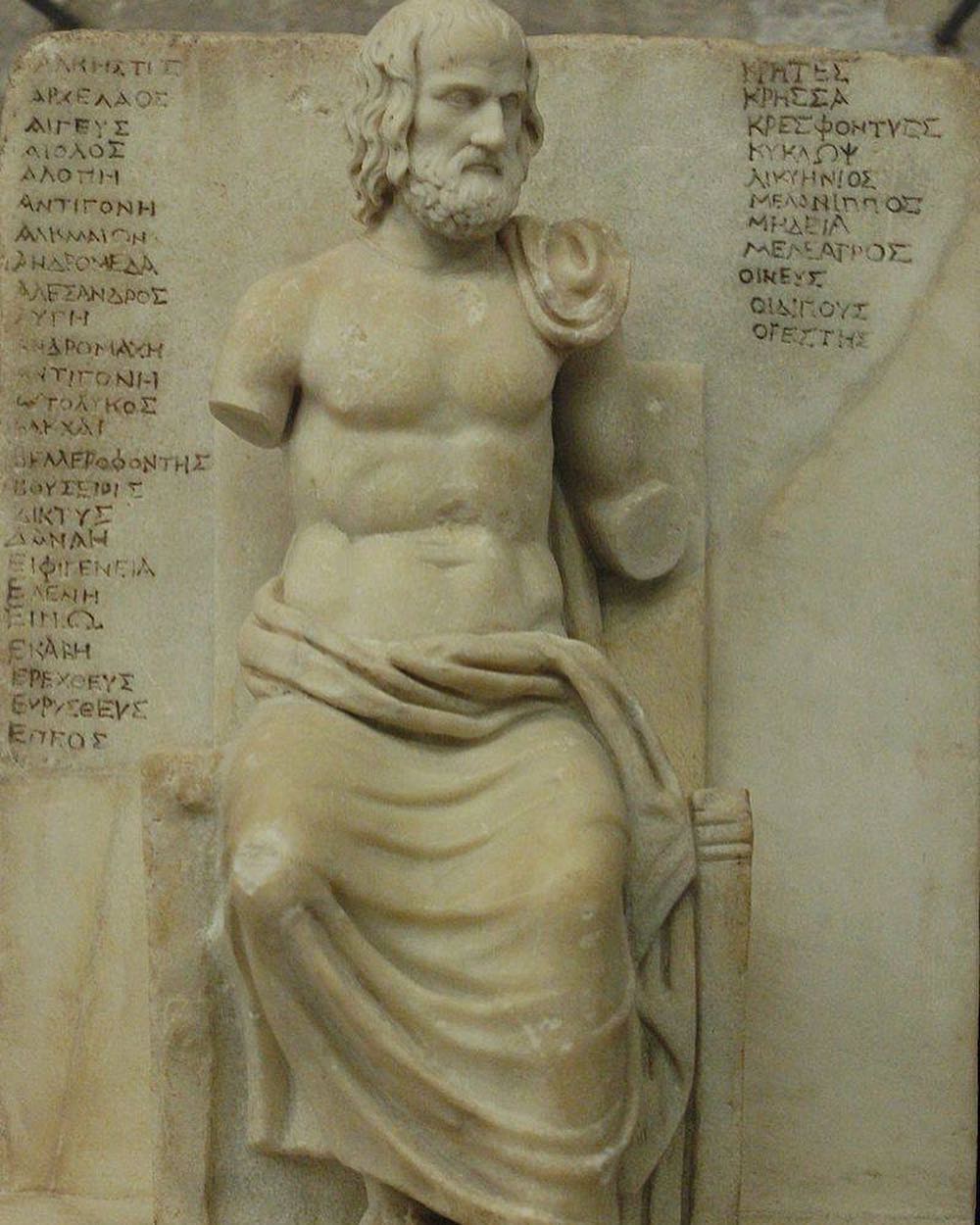We are very pleased to inform you that the second guest of the fifth cycle of the PSS panel discussions will be Sotiris Manolopulos.

“The Suppliants” – Nothing is finished until it is translated into words
Lecturer: Sotiris Manolopulos
Subtitle of the panel discussion could also be “Mothers in Black” or “Grieving Mothers”.
The panel discussion will be held on April 7, 2023 at 7 p.m. at the Belgrade City Library, Arts Reading Room.
Translation is provided, admission is free. Welcome.
Sotiris Manolopulos, a psychoanalyst, draws a very good parallel between the tragedy “The Suppliants” and what is in psychoanalysis called the grief work. Mourning and the need to know at least where the grave is if not the deceased, in order to have a place that allows psychological connection in the mental space of the one who mourns for the lost object and what would be the evidence that the other existed, are the main topics of this paper.
Subtlety with which he shows the grief work by telling the story of the mothers who are looking for their dead sons’ bodies and of the wife who jumps into the fire after her husband for not being able to endure separation or grief, are very contemporary topics. The fact that it is the Greek psychoanalyst who talks about mourning and finding this topic in the tragedy of Euripides gives this work a special dimension.
EURIPIDES
Euripides was born around 480 BC on Salamis Island. He grew up in the family that could cultivate his creativity. It is important to note that at that time he also had a personal library. The way he was thinking and writing earned him a nickname ὁ τῆς σκηνῆς φιλόσοφος = theatre philosopher.
Major part of his life the poet spent in Athens, engaging in literary work and spending time with both statesmen and common people of the time. Euripides first entered the Athenian stage in 455 with the tragedy Peliades (Πελιάδες), only to win third prize which was equal to failure. He won his first victory not earlier than in 441 BC, competing with Sophocles’ Antigone. Although the poet wrote around 90 plays, he won first prize only five times, four times in his lifetime and one posthumously. He was awarded posthumously for the tetralogy that included Bacchae and Iphigenia in Tauris, which was presented by the poet’s son Euripides Junior. A relatively small number of victories is explained by the fact that a sharp conflict between Euripides’ progressive rationalism and tradition – that had to be reflected in the plays – created in his works a certain imbalance, a disharmony, which made significantly weaker impression on Athenian theatre-goers of the time. Euripides is a poet of universal conflicts, interesting from a psychological point of view, where one’s passion is in conflict with the general principles of the already established custom and opinion. With his truthful account of various feelings, he captures the spectators’ attention and knows how to move them with the sharp twist in his heroes’ fates. He was the first tragedian who introduced psychological analysis of characters into play, what was up to then the unknown world of mental and emotional life. In an exceptionally shocking and graphic way, he portrayed the suffering, drives, feelings and passions of the human heart, especially that of a woman. The poet portrays the woman very successfully, as a seductress or a seduced woman, a wife, a mother, a stepmother, a daughter, a widow and a vengeful old woman. He is an excellent judge of the woman’s heart and exceptional at portraying women’s suffering, drives and feelings. As the weaker sex, women often need to resort to trickery, but there are also instances of passionate scenes in their fight against cruelty of men.
Of 92 plays attributed to Euripides, a Roman philologist Varro considered 65 to be authentic. Some philologists believe there were 77 plays of Euripides in the Library of Alexandria, seven of which were satires. His first plays were performed on the Athenian stage in 455 BC and he was Sophocles’ main rival ever since. As the oldest of the surviving plays was performed in 438 BC, this means we are completely unfamiliar with Euripides’ earlier work.
Of Euripides’ plays, 18 tragedies and one satire have survived, and their order according to the chronology of performance on stage is as follows: Alcestis (438 BC), Medea (431 BC), Hippolytus (428 BC), between 428 BC and 415 BC the following were performed: Herakles, the Madness of Heracles, Andromache, Ion, Hecuba, the Suppliants or Hiketides, the Trojan Women (415 BC), Electra (413 BC), Helen (412 BC), Iphigenia in Tauris, the Phoenician Women, Orestes (408 BC), Iphigenia in Aulis (406 BC), the Bacchae (406 BC), tragedy Rhesus is disputable, and finally, satire Cyclops. Therefore, of the surviving plays, only one pertains to the period before the Peloponnesian war, whilst all others were written during the war. Euripides died in 406 BC in Arethusa near Amphipolis, where he was buried.
ON THE SUPPLIANTS
Heraclides, Herakles and the Suppliants are plays that address political issues the most. In The Suppliants, Theseus appears as a defender of universal laws and Panhellenic ideals and interests. The battle is reminiscent of the Battle of Delium in 424 BC when Thebe refused to hand over the dead to Athens until it withdrew its army, and the entire play serves as a warning to humankind as the tears of mothers who lost their children in war run throughout history. The Suppliants or Hiketides (Ἱκέτιδες) is fraught with pathetic and solemn atmosphere. The image of mothers standing with twigs around the altar and pleading with the Athenians to help them with the Thebans to get the bodies of their sons who had died near Thebes is very decorative and effective. The play is characterized not only by great stylistic meticulousness in the interpretation, but also moral, social and intellectual problems that Euripides is taking to stage without taking into account the dramatic probability. The chorus of women wrapped in black symbolizes dark future of Hellada in the Peloponnesian war. People are often ready to fight and risk their lives to get the bodies of the deceased. “The Suppliants” takes this characteristic even further by showing an entire city ready to wage war in order to find the bodies of strangers. Prohibiting the burial of dead bodies is a frequent topic in the ancient Greek literature.



